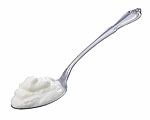 In the final part of my series on probiotics, I look at a couple of health issues before I wrap it up with some final thoughts. First, do probiotics help people who suffer lactose intolerance? And can they prevent infections after you have surgery?
In the final part of my series on probiotics, I look at a couple of health issues before I wrap it up with some final thoughts. First, do probiotics help people who suffer lactose intolerance? And can they prevent infections after you have surgery?
Lactose Intolerance
Adults commonly suffer improper absorption of lactose, an enzyme found in milk and dairy products. Many early studies have showed that eating fresh yogurt with live bacteria improved lactose digestion and reduced stomach symptoms. But then, in a review of high-quality studies, only one in seven studies showed a positive result, five were negative, and one had both positive and negative outcomes. These results could be due to the different probiotics strains, concentrations, and preparations used. Thus, future better-designed studies are needed before routine use of probiotics can be recommended for lactose intolerance.
Post-surgery Infections
Infection after gastrointestinal surgery is a major problem. The common practice is to refrain from using antibiotics after gastrointestinal surgery for fear of developing antibiotic-resistant bacteria. Both probiotics and prebiotics have been advocated recently as alternatives to antibiotics.
In a good-quality study, 95 patients undergoing liver transplantation were divided into three groups: (1) standard treatment of intestinal bacteria plus good nutrition after surgery; (2) standard treatment plus the probiotic “Lactobacillus plantarum,” as well as fiber; and (3) the same as #2 except the “L. plantarum” was inactivated or dead rather than being alive. In group 1, the post-surgery infection rate was 48%. But those in group 2 had a significantly reduced rate of 13%. Thus, the use of probiotics was extremely beneficial.
These same researchers studied the effects of “L. plantarum” on infections in other types of gastrointestinal surgeries (liver, pancreas, stomach, large intestine, and intestinal bypass) and found decreased infection rates. But it doesn’t end there! Probiotics were found to have other added benefits, such as an improved quality of life, shortened hospital stay, and a reduced use of antibiotics.
Final Thoughts
The future of probiotics carries great potential. Experts believe that we’ll see the development of new, scientifically proven strains that have specific health benefits. So you can buy a certain strain if you have a particular condition. Probiotics holds great promise for improving the immune function of older adults and those with low white blood cell counts, as well as preventing and treating inflammatory bowel diseases.
Read the first six parts of this series here:
The Power of Probiotics
Your Best Defense Against the “D” Word
Fight Off One of the Worst Infections with This
Curing an Irritable Bowel…with These Friendly Bacteria
How Probiotics Battle Colitis
Why Women Should Consider This For Great Health
